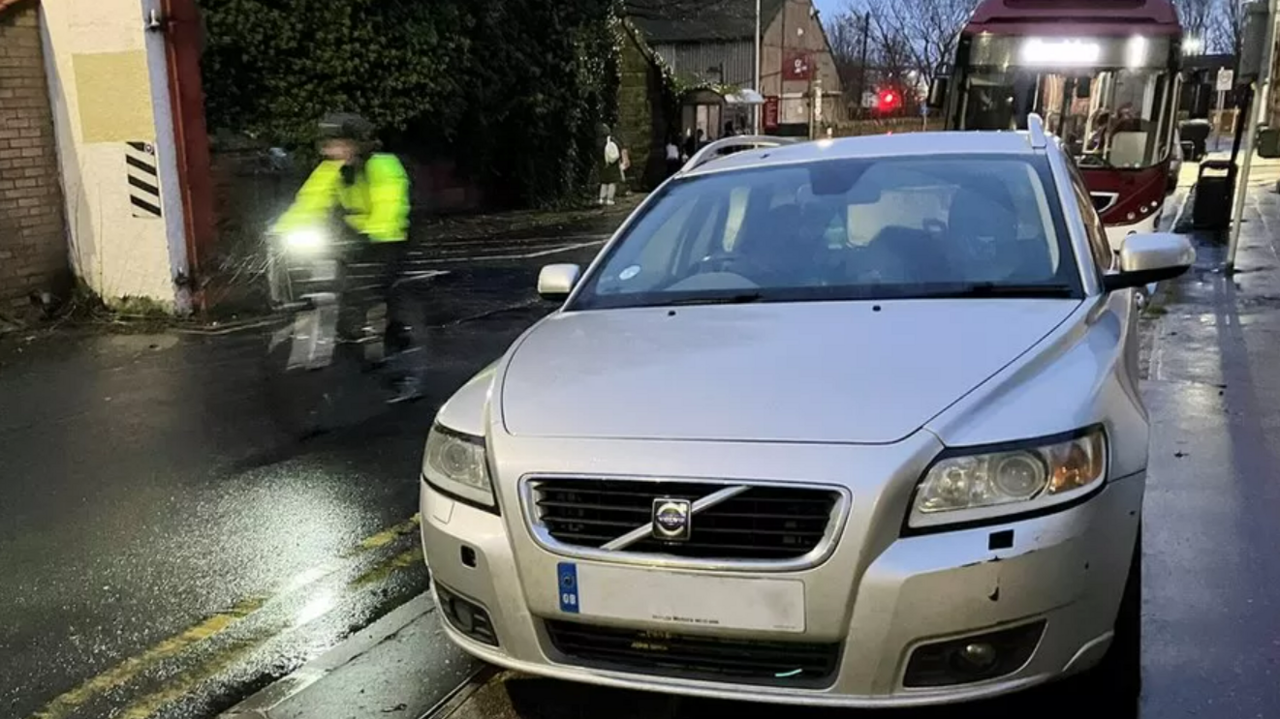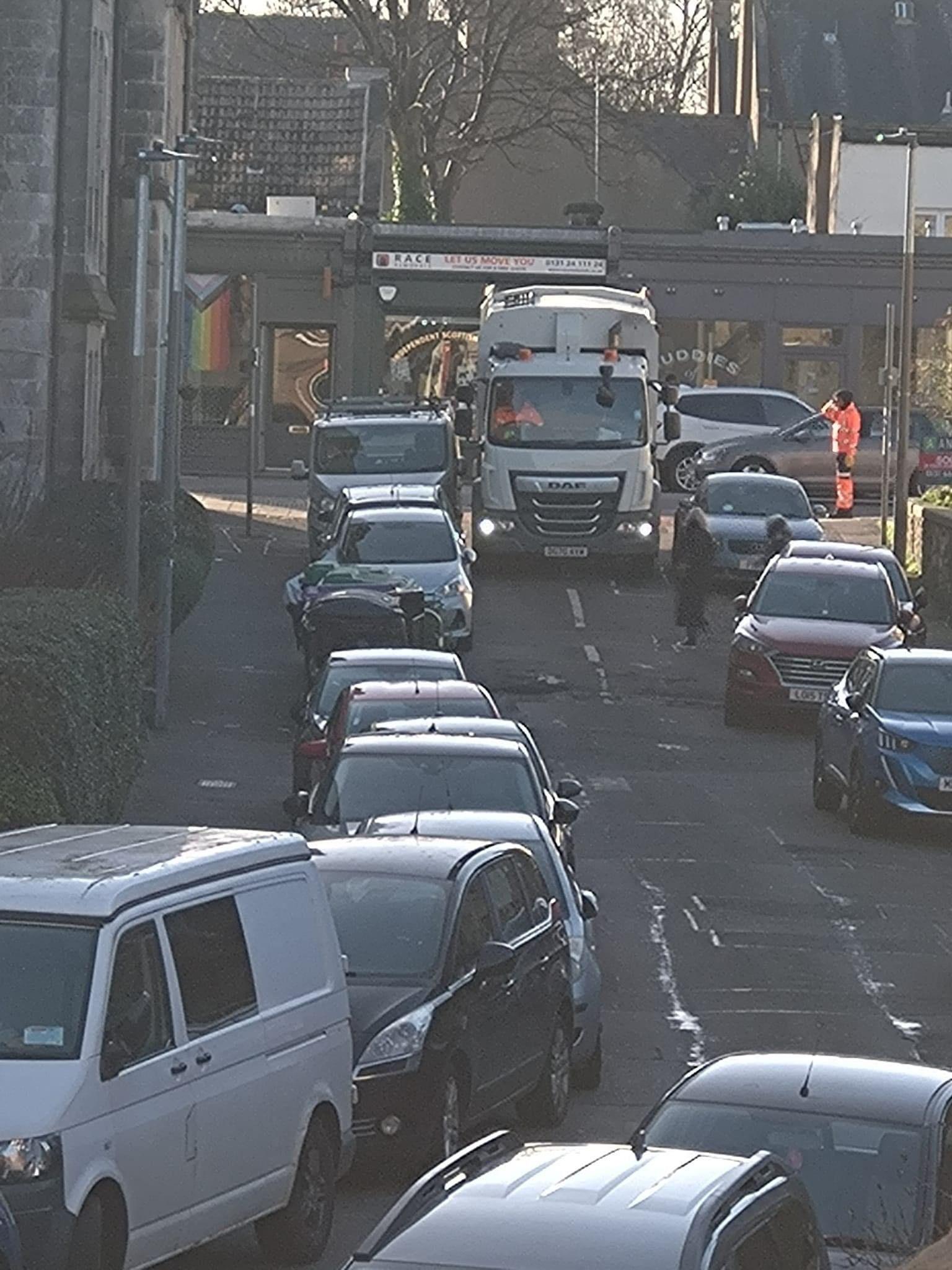Edinburgh pavement parking ban: How much is the fine?

Pavement parking is banned in Edinburgh from 29 January.
- Published
Edinburgh has become the first city in Scotland to enforce a ban on pavement parking.
Drivers whose vehicles are found to be blocking pedestrian footways could be fined up to £100 from 29 January.
Highland Council will follow suit within the next few days, with several others considering whether to introduce similar laws.
It brings Edinburgh in line with London, which has had a ban in place since 1974.
How much is the parking fine exactly?
All parking on pavements across the city will be outlawed under the new rules.
Parking on dropped kerbs and double parking will also be banned, but there will be an exemption for delivery drivers.
The ban also covers parking at a crossing point or on verges between roads and pavements.
Pavement parking banned in Edinburgh from January
- Published16 November 2023
First Scottish city to ban pavement parking
- Published11 November 2023
The council said it does have the power to introduce emergency or temporary lifting of the restrictions to ensure streets can be “safely serviced” by emergency or waste collection vehicles.
However, any exemptions would require the marking of formal parking places and the installation of signage, according to the local authority.
Drivers found to be mounting the kerb face a £100 fine, but that will drop to £50 if it is paid within 14 days.
That is cheaper than the equivalent in London, where fines drop from £130 to £65 if paid within the time limit.
What does Edinburgh council say?
The Scottish government passed a law giving local councils the power to outlaw pavement parking in 2021.
However, it only received Scottish Parliament approval in December.
City of Edinburgh Council confirmed it would begin enforcing the measures after 68% of respondents to a survey indicated their support for the plans.
It said it wrote to neighbours in a number of streets across the city to help them prepare for the measures after assessing more than 5,000 roads under its control.
It is hoped the ban will "declutter" streets for pedestrians, particularly those with pushchairs or mobility issues.
But BBC Scotland News has also spoken to people worried it could lead to problems for bin lorries and emergency service vehicles on narrow streets.

A bin lorry pictured reversing down a narrow street in Edinburgh on Friday - the vehicle was unable to pass cars parked on the road
The council's transport and environment convener Scott Arthur said the move would keep pavements "accessible for all".
He said: "Making sure our footways are kept clear will deliver real benefits for pedestrians and road users, particularly those who are disproportionately affected such as parents with pushchairs, older people and wheelchair users.
“We would expect everyone to adhere to the new prohibitions when the final regulations come into force to guarantee our streets are safer and more user-friendly.”
What are other councils doing?
Highland Council will begin enforcing its ban from 1 February.
Glasgow City Council said it would take a "phased approach" to introducing its own ban.
Several other Scottish local authorities have said their versions will be rolled out in 2024, but are yet to give a definitive date.
Councils will be allowed to grant exemptions where they see fit.
Sustainable travel groups have welcomed the moved, but have warned councils they must enforce the ban properly if it is to be successful.
Stuart Hay, director of Living Streets Scotland, said: "Mass exemptions seriously undermine the ban and will put people at risk if they aren’t introduced following rigorous assessments and consultation.
"Without sufficient enforcement capacity, many groups including disabled people will feel badly let down. We want to see targeted and proactive action in known hotspots where pavements need to be cleared of obstructing cars."